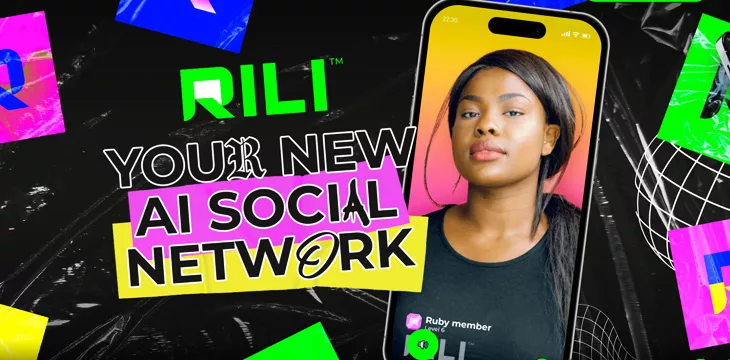|
Getting your Trinity Audio player ready...
|
Many industries and sectors around the world are now using digital twin technology. In the Asia-Pacific region alone, the Digital Twin Market is expected to see a market growth of over 45% compound annual growth rate (CAGR) during the forecast period (2023-2030) and a global market size to reach an average of $138 billion by 2030, according to Fortune Business Insights.
As digital twin technology gains popularity worldwide, businesses are combining artificial intelligence (AI) with digital twin, recognizing the duo’s ability to produce better insights, accurate predictions, and smarter decisions. With the help of AI, smart computer programs are put to work to make digital twins even more effective. AI helps predict things before they happen and makes decisions faster. This teamwork makes it easier to keep things running smoothly, fix problems before they get big, and plan better. Moreover, there’s growing recognition that blockchain could enhance this integration by ensuring data security and accuracy.
Despite blockchain’s unique capabilities, some companies chose to hold off on integrating the technology.
One such platform leveraging AI and digital twins is Rili.ai, an AI-powered social network that aims to combat loneliness. Founded by Jorge Cuervo and Antonio Camacho, the platform uses the concept of digital twin, allowing users to create digital replicas of themselves for meaningful interactions.
In my interview with the founders, Cuervo describes Rili.ai as more than just a social network but as a means for fostering relationships, saying, “Our vision is to foster meaningful connections in a digital landscape dominated by superficial interactions.”
Their vision was not just about creating digital replicas but about attending to the profound human need for genuine connection.
“Our platform isn’t just about creating avatars; it’s about addressing profound human needs,” Cuervo explained.
Their prototype gained much interest in regions like the Philippines and India, where there is a robust appetite for such solutions. Cuervo said the Philippines stood out due to its young, tech-savvy population, making the country an ideal market for Rili.ai’s mission.
“Philippines has an amazing, young audience. The percentage of that population that is in our target audience, is very relevant,” he noted.
Cuervo also elaborated on what truly sets the Philippines apart from other countries—its remarkable level of adoption of innovative technologies, specifically in generative AI and traditional social media platforms.
“The level of adoption of these kinds of tools… is nuts compared to other peers and particularly related with generative AI, I would say the Philippines, if not the first, one of the first, two or three countries in an adoption level in the world,” said Cuervo.
Moreover, compared to other countries, the ease of adoption and eagerness to embrace new solutions in the Philippines was evident during Rili.ai’s initial tests, with adoption rates surpassing those in the United States by a huge margin.
“The easiness of adoption in the Philippines was amazing. It was something like 20 or 50 times easier than doing anything in the United States, for example,” Cuervo noted.
This enthusiastic embrace of new technologies positions the Philippines as an ideal testing ground for Rili.ai’s platform, allowing the company to gather valuable feedback and insights from early adopters.
When asked about blockchain technology and its potential convergence with AI, the founders acknowledged the potential of blockchain technology while maintaining a neutral stance on digital currencies. However, they firmly believe in the inherent value of blockchain itself.
“We think that blockchain is a very good idea. We have different opinions on cryptocurrencies. But the blockchain itself, it’s good for sure. We’re not establishing a link or data link, between these two technologies (AI and blockchain). Probably it will come sometime,” Curevo added.
Despite its potential, Cuervo said they are currently not exploring the possibility of integrating blockchain technology into their platform, stressing the importance of ethical considerations and their focus on providing entertainment.
“It is very relevant for us to be very careful with the ethical principles that we follow as a tool. We’re just trying to provide entertainment to the people, so we are not thinking in the short term to establish a bond with blockchain or with the metaverse,” he said.
When asked about blockchain and data ownership, the founders acknowledged the potential benefits of blockchain technology to serve that purpose, however as mentioned prior, integrating blockchain is currently not in their short-term roadmap, as they primarily focus on refining their brain technology for user engagement.
To address data privacy and security, Cuervo highlighted the Rili.ai’s commitment to compliance with regulations such as General Data Protection Regulation (GDPR) and maintaining high-security standards. Cuervo discussed the platform’s partnership with Google’s (NASDAQ: GOOGL) security team and the appointment of a Chief Information Security Officer with extensive experience. Cuervo assures that Rili.ai’s cloud-based platform on Google ensures that security standards are of the highest level.
As AI and digital twin technology advance, there’s emerging realization of blockchain’s potential to enhance optimization. Blockchain’s transparency and security features could bolster the integration of AI and digital twin, ensuring safer and more reliable data. By using blockchain, businesses can ensure the accuracy of the large amounts of data used by AI-driven digital twin, leading to increased efficiency, resilience, and competitiveness in today’s digital world.
Rili.ai is at the forefront of fostering genuine connections through digital twin with the help of AI. While they acknowledge the potential of blockchain technology, they have no immediate plans for integration, as their current focus is on perfecting user engagement.
In order for artificial intelligence (AI) to work right within the law and thrive in the face of growing challenges, it needs to integrate an enterprise blockchain system that ensures data input quality and ownership—allowing it to keep data safe while also guaranteeing the immutability of data. Check out CoinGeek’s coverage on this emerging tech to learn more why Enterprise blockchain will be the backbone of AI.
Watch: What does blockchain and AI have in common? It’s data

 07-02-2025
07-02-2025 





